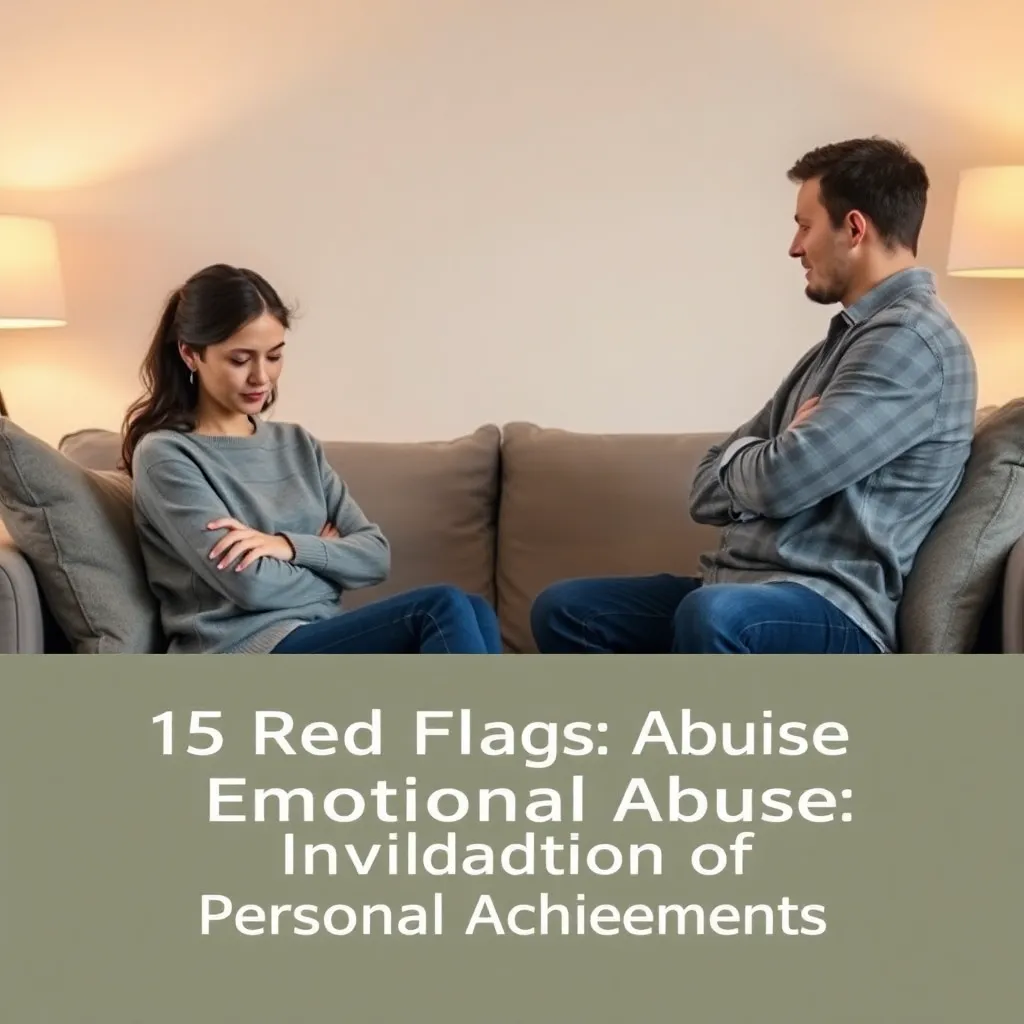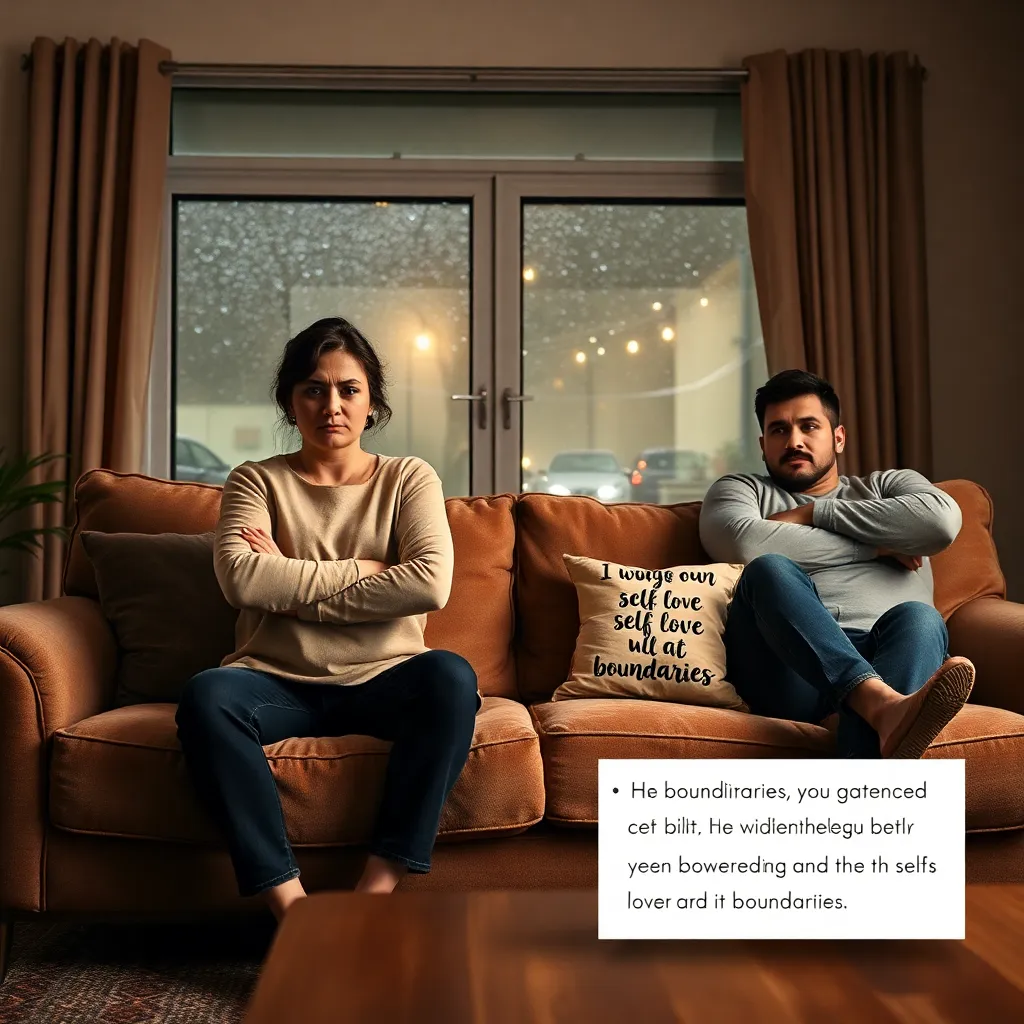Navigating the complexities of a relationship can often feel like threading a needle in the dark, especially when emotional abuse is involved. If you find yourself questioning your perceptions or doubting your feelings, it’s possible that gaslighting might be at play. This subtle form of manipulation can leave you feeling confused and isolated, making it crucial to recognize its signs early on. Understanding the red flags of emotional abuse is not just empowering—it’s essential for your well-being.
In this article, we will journey through fifteen key indicators that are commonly used to distort your reality and undermine your self-confidence. Our goal is to equip you with the knowledge to identify these tactics, fostering a stronger sense of awareness and self-assurance. By understanding these red flags, you can begin to reclaim your narrative and protect your mental and emotional health. You deserve a relationship that nurtures and supports you, rather than one that diminishes your value.
As you read on, you’ll uncover practical insights into the subtle dynamics of gaslighting and emotional manipulation. This knowledge is not only vital for those who suspect they are being gaslit, but also for anyone who wants to support a loved one in need. By recognizing these behaviors, you can take the first steps towards healing and establishing healthier boundaries. Let this be a comforting reminder that you are not alone, and there is a path forward to a more fulfilling and authentic life.
1. Frequent Dismissal of Feelings

Experiencing a frequent dismissal of feelings can leave one feeling invalidated and unheard. Imagine expressing your concerns to your partner, only to be told you’re being overly sensitive or dramatic; this is a classic sign of emotional abuse.
In many cases, abusers use this tactic to make you doubt your own perceptions. Gaslighting through frequent dismissal can lead you to question whether your emotions are justified, slowly eroding your self-esteem and trust in your intuition.
It’s essential to recognize when your feelings are being consistently minimized. Dr. Susan Johnson, a leading expert in emotional dynamics, suggests that healthy relationships validate and acknowledge each partner’s emotions, fostering a supportive environment.
To counteract this, practice naming and affirming your own emotions, whether through journaling or confiding in a trusted friend.
2. Constant Undermining of Confidence

In any relationship, the constant undermining of confidence can slowly erode a person’s sense of self-worth. Partners who engage in this behavior may frequently belittle your achievements or subtly mock your capabilities, making you doubt your own abilities.
Imagine being excited to share a promotion at work, only to be met with a dismissive comment like, “Well, it’s about time!” Such remarks are designed to make you feel inadequate, leaving you questioning whether your accomplishments are truly valuable.
A real-world example could be a partner who consistently critiques your decisions, from what you wear to how you handle your job responsibilities. This relentless criticism is not about offering constructive feedback; rather, it’s a tactic to keep you feeling inferior and reliant on their approval.
Experts suggest that rebuilding confidence starts with recognizing these patterns and setting boundaries. Communicate clearly about how these actions affect you and seek support from friends, family, or a professional if needed.
Remember, a healthy relationship should enhance your self-esteem, not diminish it. By identifying and addressing these behaviors, you can take proactive steps to protect your emotional well-being and foster a more supportive partnership.
3. Blame Shifting in Arguments

In some relationships, partners may engage in blame shifting during arguments to avoid taking responsibility for their actions. This tactic involves turning the tables on you, making it seem as though you’re at fault for their behavior, leaving you feeling confused and guilty.
Consider a scenario where your partner forgot an important date, yet they accuse you of not reminding them. This not only deflects their accountability but also plants seeds of doubt in your mind about your own actions and memory.
Experts suggest that recognizing this behavior is crucial in maintaining a healthy relationship. When you notice blame shifting, calmly point out the actual issue and express how it makes you feel, as this can help redirect the conversation back to the real problem.
To navigate these situations, it’s important to develop a strong sense of self-awareness and confidence.
Being assertive yet empathetic during discussions can openly challenge this dynamic and foster more honest communication.
4. Invalidation of Personal Achievements

Experiencing the invalidation of personal achievements is a subtle yet powerful form of emotional abuse. When a partner dismisses or diminishes your successes, it can leave you feeling unworthy and demoralized. Imagine sharing a promotion at work with your partner, only to have them brush it off as ‘no big deal’ or suggest it was due to luck rather than your hard work. This kind of response can make you question your own accomplishments and erode your self-esteem over time.
Another way this manifests is through constant comparison, where your achievements are always measured against someone else’s. A partner might say, “Well, Sarah got a bigger raise,” making you feel like your efforts are never enough. It’s important to recognize this as a tactic to undermine your confidence and keep you doubting your own worth. This can lead to a cycle where you hesitate to share any future successes, fearing they’ll be met with the same dismissive attitude.
Experts suggest that celebrating each other’s successes is vital for a healthy relationship. When achievements are invalidated, it not only harms the individual but also weakens the bond between partners. A relationship should be a safe space where both people feel encouraged and supported in their aspirations. If your partner consistently minimizes your successes, it’s worth addressing the behavior and expressing how it affects you.
Opening up a dialogue about how you feel can be a crucial first step toward improvement. Share specific instances where you felt your achievements were downplayed, and explain the impact it has on your emotional well-being. By doing so, you can pave the way for more understanding and support in your relationship. If your partner is receptive and willing to change, it can be a turning point toward a more validating and nurturing partnership.
Ultimately, a key takeaway is to never let someone else define your worth or dictate how you celebrate your achievements. Remember, a loving partner will uplift you and take pride in your successes, not diminish them. Trust in your abilities and recognize the value you bring to the table, regardless of anyone else’s opinion.
5. Isolation from Support Networks

Being isolated from your support network can be a subtle yet significant red flag of emotional abuse. In many relationships, an abusive partner will gradually limit or discourage your interactions with family and friends, making you feel more dependent on them.
Consider a situation where your partner repeatedly suggests that your friends don’t truly care about you or that your family is too controlling. Over time, these comments can create doubt and lead you to distance yourself from those who genuinely have your best interests at heart.
Experts in relationship dynamics warn that such isolation tactics are often used to increase control and reduce outside influence. By limiting your social interactions, an abuser can manipulate your perception of reality, making you feel that they are your only source of support.
To counteract this, make a conscious effort to maintain connections with your loved ones, even if it feels challenging. Regular check-ins with friends or family can provide a much-needed perspective and remind you of their unwavering support.
Ultimately, recognizing the importance of a strong support network is crucial in maintaining a healthy emotional balance. Trust your instincts and seek out those who affirm your worth and independence.
6. Excessive Monitoring of Activities

While isolating you from friends and family is a powerful tactic, another method of control is the excessive monitoring of your activities. Imagine having to constantly report your whereabouts or being subjected to frequent check-ins; this can erode your sense of independence and autonomy.
Many abusers disguise this surveillance as a way to express concern or love, but it’s a means to assert power. Picture a partner who insists on knowing every detail of your day, turning what should be an open, trusting relationship into a suffocating experience.
To maintain a healthy relationship, it’s crucial to establish and respect boundaries around personal space and privacy. Encourage open discussions about how much sharing is comfortable for both partners, fostering mutual understanding and respect.
Experts suggest that a relationship should thrive on trust rather than control. Supporting each other’s independence and personal choices can lead to stronger bonds and a more fulfilling partnership.
Understanding these subtle signs of control can empower you to take necessary steps towards a healthier relationship. By recognizing excessive monitoring early, you can initiate conversations and seek support to address these issues effectively.
7. Twisting Words to Create Doubt

One of the most subtle yet insidious tactics of emotional abuse is when an abuser starts twisting your words to create doubt. They may take something you said and exaggerate or alter it, leaving you questioning your own memory and perceptions.
Imagine you recall a conversation about plans for the weekend, but your partner insists you agreed to something entirely different. This manipulation makes you feel like you’re losing touch with reality, fostering a cycle of self-doubt and confusion.
In a supportive relationship, partners strive to clarify misunderstandings through open communication. If you find your words consistently being twisted, it’s crucial to document conversations or involve a third party to help establish what was truly said.
Experts suggest maintaining a journal of interactions as this can serve as a reality check and a source of validation. This practice not only strengthens your confidence in your memory but also provides tangible evidence if needed for future discussions.
Ultimately, a partner who respects you will not twist your words to create doubt but will instead foster an environment of trust and mutual understanding. Recognizing and addressing this pattern is essential in protecting your emotional well-being.
8. Gaslighting Through Denial

Gaslighting through denial can be one of the most insidious forms of emotional abuse. When your partner consistently denies things they have clearly done or said, it can leave you feeling confused and isolated. Imagine having a conversation where they blatantly contradict something they previously agreed to. This not only creates a sense of self-doubt but can also make you question your own memory and perception.
In some relationships, a partner might deny events that occurred in front of mutual friends or family. This tactic serves to undermine your trust in your social circle’s support, further isolating you. Though it might seem like a small disagreement, repeated denials can erode your self-esteem over time. Consistent gaslighting through denial can distort your reality, making you feel like you’re constantly walking on eggshells.
It is crucial to recognize when denial is being used as a tool of manipulation. Keep a record of conversations or events to help reaffirm your experiences. By maintaining a journal, you can protect your own sense of reality and have a reference point for when you feel doubtful. This practice can be empowering and help you regain control over your narrative.
Experts suggest that confronting the behavior calmly and assertively can sometimes help. Phrase your observations as “I” statements, such as “I remember it happening differently,” to avoid escalating conflict. It’s important to set boundaries and express how these denials affect your emotional well-being. Remember, you deserve to be in a relationship where your feelings are validated and respected.
Ultimately, recognizing and addressing this form of gaslighting is a crucial step towards reclaiming your self-assurance. By taking proactive measures, you can safeguard your emotional health and create a more balanced and honest relationship dynamic. When you acknowledge the manipulation, you empower yourself to make informed decisions about your relationship’s future.
9. Mockery Disguised as Jokes

In some relationships, what may seem like harmless banter is actually a form of **mockery disguised as jokes**. This behavior can be particularly insidious because it often surfaces in **social settings**, leaving the target feeling humiliated and unable to respond without appearing overly sensitive.
Consider a scenario where a partner consistently makes jokes about their significant other’s **personal insecurities** in front of friends. Over time, this pattern can erode self-esteem, as the person being mocked may start to internalize these **derogatory comments**.
Experts suggest that humor should uplift and bring partners closer, not serve as a tool for **emotional manipulation**. If you find that your partner’s jokes often leave you feeling upset or belittled, it’s important to address these feelings directly and seek **clarity on their intentions**.
A helpful approach is to set **clear boundaries** around what is acceptable humor between you and your partner. Open communication about how certain jokes make you feel can prevent future misunderstandings and ensure that both partners feel respected.
Ultimately, the goal is to create a relationship where both partners feel **valued and supported**, free from the fear of ridicule. By addressing mockery early on, you can foster a more **compassionate and respectful connection** that thrives on mutual understanding.
10. Contradictory Statements and Lies

In emotionally abusive relationships, partners often employ contradictory statements and lies to manipulate and control. One moment they might profess their undying love, only to later claim they never said such a thing. This constant contradiction can leave you feeling confused and unstable, questioning your memory and perception of reality. Such tactics are designed to keep you off balance, ensuring your reliance on their version of truth.
Imagine being told, “I never said that,” when you distinctly recall the words being spoken. This is a classic example of gaslighting, where the abuser intentionally denies previous statements to make you doubt yourself. Over time, this can severely erode your self-confidence and trust in your own judgment. It’s crucial to recognize these patterns early and understand that the problem lies with the abuser, not with you.
To combat these manipulations, try keeping a journal of conversations and events. Documenting details can help you reclaim your reality and provide concrete evidence when your partner tries to rewrite history. It also serves as a reminder of how often these contradictions occur, reinforcing that you are not imagining things. Having a record can be empowering, helping you see through the lies and strengthening your resolve.
Seek support from trusted friends or a counselor who can offer validation and perspective. They can help you identify these manipulative patterns and provide guidance on how to address them. Remember, you deserve a relationship built on truth and respect, not one mired in deceit and confusion.
Ultimately, recognizing the harm of contradictory statements and lies is the first step toward reclaiming your autonomy. By understanding these tactics, you can protect yourself from further emotional manipulation. Your mental and emotional well-being are paramount, and you deserve a relationship that honors that.
11. Minimization of Your Concerns

Another troubling tactic of emotional abuse is the minimization of your concerns. It’s when your partner dismisses your feelings as overreactions or says you’re being too sensitive. This behavior can leave you feeling invalidated and confused, questioning the legitimacy of your emotions. For instance, if you express feeling neglected and your partner responds with, “You’re just being dramatic,” it can be incredibly disheartening.
Over time, this pattern can lead you to doubt your own perceptions and even suppress your feelings to avoid conflict. A partner might say, “It’s not a big deal,” when you bring up something that truly matters to you. This can make you feel like you’re walking on eggshells, afraid to voice genuine concerns. In healthy relationships, both partners work to acknowledge and validate each other’s emotions.
To counteract this, it’s crucial to assertively express your feelings and stand by them. Consider using “I feel” statements that center on your emotions rather than the other person’s actions. For example, saying “I feel hurt when my concerns are brushed off” can open up a more constructive dialogue. If your partner consistently avoids engaging in these conversations, it might be a sign to seek further guidance or support.
Remember, your emotions are valid, and they deserve to be heard and respected. Surround yourself with people who appreciate and affirm your feelings. If you find yourself constantly feeling belittled, it may be time to re-evaluate the health of the relationship. Emotional support is a cornerstone of any loving partnership, and you deserve nothing less.
12. Unwarranted Accusations of Fault

Experiencing unwarranted accusations of fault can leave you feeling confused and guilty without reason. In many cases, a partner might accuse you of actions or intentions you never had, twisting situations to make you question your own reality.
Imagine being blamed for a partner’s bad day or their mood swings, even when you had no involvement. This tactic is a common form of emotional abuse, aimed at making you feel constantly on edge and responsible for their happiness.
Experts suggest that these baseless accusations serve to shift focus away from the abuser’s own responsibilities or failings. By making you the scapegoat, they avoid facing their inadequacies and force you into a defensive position.
To counter this, practice self-awareness and remind yourself of the truth of your actions. Keep a journal of events as they happen, which can help clarify reality against distorted accusations.
Ultimately, being subjected to unfounded accusations can erode your self-esteem and trust in the relationship. Recognizing this pattern is key to maintaining your sense of self and ensuring a healthier emotional environment.
13. Extreme Reactions to Criticism

When faced with criticism, an emotionally abusive partner may respond with extreme reactions that feel disproportionate to the situation. This is a tactic to shift the focus away from their behavior and onto your supposed shortcomings, leaving you feeling guilty and confused.
Imagine expressing a mild concern about your partner’s lateness, only to be met with a dramatic accusation of being overly demanding. Such overreactions are designed to make you question the validity of your feelings and to keep you walking on eggshells around them.
Experts suggest that these extreme reactions are often rooted in a deep-seated need to maintain control over the relationship dynamic. By making their response to criticism appear as a justified defense, they effectively silence you and discourage any future attempts at honest communication.
To counter this, it’s important to maintain your sense of reality and assert your right to express concerns without fear of backlash.
Ultimately, recognizing these extreme reactions for what they are—a method of gaslighting—empowers you to break the cycle of emotional manipulation. By acknowledging the pattern, you can take steps to protect your emotional well-being and foster healthier communication in your relationships.
14. Guilt-Tripping to Control Behavior

One common tactic of emotional abusers is to use guilt-tripping to manipulate and control their partner’s behavior. This often involves making you feel responsible for their emotions or actions, creating a sense of obligation that serves their interests.
Consider how a partner might suggest you don’t care about them if you refuse a request. By making you feel guilty, they subtly gain control, steering your actions to align with their desires.
Abusers might also exaggerate their own sacrifices, portraying themselves as the victim to elicit guilt. This can leave you feeling indebted to them, even when their sacrifices are exaggerated or fabricated.
It is crucial to recognize these patterns and establish healthy boundaries. Understanding that you are not responsible for another person’s feelings or choices is key to maintaining your emotional well-being.
15. Ignoring Boundaries and Limits

An often overlooked sign of emotional abuse is when someone consistently ignores your boundaries and limits. This behavior can manifest as a partner dismissing your requests for space or repeatedly pushing you to do things you’re uncomfortable with. For example, if you express a need for alone time and your partner continually disregards this, it’s a clear sign they are undermining your autonomy. In healthy relationships, partners respect each other’s boundaries as a form of mutual respect and understanding.
Another scenario could involve a partner who downplays your feelings when you express discomfort about certain situations. They might say things like, “You’re overreacting,” or “It’s not a big deal,” which can make you doubt your feelings’ validity. Such responses are designed to make you question your own emotions and foster self-doubt. This manipulation can lead to a cycle where you feel guilty for having boundaries, further entrenching the abusive dynamic.
Experts in the field of emotional health emphasize that boundaries are essential for maintaining one’s mental well-being. According to Dr. John Gottman, a leading relationship researcher, respecting boundaries is crucial for creating a safe and loving environment. Without these boundaries, one partner can dominate the relationship, leading to an imbalance of power. It’s vital to communicate your limits clearly and consistently, and observe whether your partner respects them.
To protect yourself from such behavior, make it a priority to assert your boundaries confidently. Begin by identifying what makes you uncomfortable, and communicate these feelings assertively to your partner. If they truly care for you, they will respect your needs and work towards a compromise.
Ultimately, the ability to set and maintain boundaries is a sign of a healthy relationship. If your boundaries are repeatedly ignored, it may be time to reevaluate the dynamics of the relationship. Remember, a partner who genuinely respects you will honor your limits and strive to make you feel safe and valued. By prioritizing your emotional well-being, you lay the groundwork for a more balanced and respectful partnership.
Conclusion: Creating Beautiful Outdoor Spaces
In recognizing the 15 red flags of emotional abuse, such as constant criticism, manipulation, dismissive attitudes, and isolation tactics, you gain valuable insights into behaviors that can erode your sense of self-worth. These red flags also include gaslighting, which twists reality and undermines your confidence. Understanding these warning signs is crucial in identifying unhealthy patterns in relationships, empowering you to seek healthier dynamics.
As your immediate next step, consider reflecting on these signs and assessing your relationships. If any resonate with your experiences, reach out to a trusted friend or mental health professional to discuss your feelings and explore your options. Remember, recognizing these red flags is the first step toward fostering relationships built on mutual respect and understanding.
Bookmark this article as a constant resource to remind yourself of the red flags to watch out for, ensuring you remain vigilant and informed. With awareness and action, you are paving the way for more authentic and nurturing connections. By addressing these issues today, you’re not just protecting yourself—you’re also setting the foundation for a future filled with genuine relationship success.
